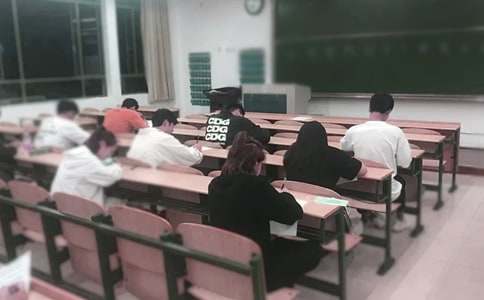2017年職稱英語(yǔ)考試詞匯記憶的六大技巧總結(jié)
引導(dǎo)語(yǔ):怎樣記憶職稱英語(yǔ)的詞匯呢?下面是yjbys小編整理的2017年職稱英語(yǔ)考試詞匯記憶的六大技巧總結(jié),希望可以幫助到你!

一、結(jié)合記憶法
將比較生疏,不常用的單詞放入一定的'語(yǔ)言環(huán)境——句子中,結(jié)合句意來(lái)記憶單詞。遇到此單詞時(shí),若詞義忘記,則可通過(guò)回憶所在句子的意思來(lái)記憶單詞。例如:
slope
n. ①傾斜;坡度;斜度
there is always a certain slope in a ship’s deck. 船的甲板總有幾分傾斜。
②斜面;斜坡
we climbed the steep slope of the hill. 我們爬了那座陡峭的斜坡。
vi. 傾斜。
the railroad slopes up slightly at this point. 鐵路在此處有輕微的傾斜。
critical
adj. ①批評(píng)的,吹毛求疵的
i don’t like people who are too critical about everything. 我不喜歡對(duì)每件事都太吹毛求疵的人。
②緊要的,關(guān)鍵的;危急的
his condition is reported as being very critical. 據(jù)報(bào)告他的情況非常危急。
通過(guò)此法來(lái)掌握詞匯,既有助于記住單詞本身的拼寫、拼讀,又可同時(shí)熟悉詞的詞義、詞性、用法和搭配,比孤立地背記單詞效果要好。
二、同類記憶法
將同類詞匯收集在一起,同時(shí)背記。注意,同類詞匯與同義詞不同:同義詞是指意思相同,而同類詞是指基本屬性相同、具體意義的層次,級(jí)別或范圍不同的一類詞匯。
如headmaster和principal是同義詞,都表示,“中小學(xué)校長(zhǎng)”;president和chancellor是同義詞,都表示大專院校“校長(zhǎng)”。這兩組詞是同類詞匯,都表示“校長(zhǎng)”,但具體級(jí)別不同,所以兩組詞不是同義詞。
再如bachelor、master,doctor 三個(gè)詞都表示學(xué)位授予的情況,但具體級(jí)別不同,所以這三個(gè)詞也是一組同類詞匯。
這樣,將同類詞匯放在一起記憶,當(dāng)遇到其中一個(gè)詞時(shí),頭腦中出現(xiàn)的就是一組詞,效率大大提高了。
三、比較記憶法
把同義詞或形似詞放在一起,加以區(qū)別。記憶的過(guò)程是一組組,一對(duì)對(duì)單詞同時(shí)記憶。職稱英語(yǔ)中有很大一部分都是對(duì)同義詞或近義詞的考察,需要平時(shí)進(jìn)行記憶和積累。
例題1:the researchers have just completed a study of driving situations.
a. started
b. finished
c. changed
d. made
答案:b
例題2:michael is now merely a good friend.
a. largely
b. possibly
c. just
d. rarely
答案:c
merely/ only/ just
四、構(gòu)詞法記憶法
通過(guò)掌握構(gòu)詞法來(lái)記憶單詞。英語(yǔ)主要有三種構(gòu)詞法:
1)轉(zhuǎn)化,即由一個(gè)詞類轉(zhuǎn)化為另一個(gè)詞類。例如:
picture 畫-picture 描繪
water 水-water 澆水
例題1: he has trouble understanding that other people judge him by his social skills and conduct.
a. behavior
b. style
c. mode
d. attitude
答案:a
解釋:
conduct 引導(dǎo),管理,為人,傳導(dǎo)
conduct 操守,行為
conductor 列車員,售票員,指揮者,導(dǎo)體等
semi-conductor 半導(dǎo)體
例題2:the ice is not thick enough to bear the weight of a tank.
a. suffer
b. accept
c. receive
d. endure
答案:d
解釋:
bear 熊
bear 負(fù)擔(dān), 忍受, 帶給, 具有, 擠
2)派生,即通過(guò)加前綴或后綴構(gòu)成另一個(gè)詞,例如:
happy→ unhappy happiness
例題1: the workers in that factory manufacture furniture.
a. promote
b. paint
c. polish
d. produce
答案:d
例題2: even in a highly modernized country, manual work is a still needed.
a. mental
b. physical
c. natural
d. hard
答案:b
man-, manu- =hand
manage, manual, manuscript, manufacture, manumit
例題3:about one million americans are diagnosed,annually with skin cancer.
a. every year
b. severely
c. actively
d. every month
答案:a
ann= year
anniversaire
anniversary, annals, annuity
3)合成,即由兩個(gè)或更多的詞合成一個(gè)詞。例如:
wood cut→ woodcut
pea nuts→ peanut
例題1: in the latter case the outcome can be serious indeed.
a. judgement
b. result
c. decision
d. event
答案:b
五、根義記憶法
利用根義代替記憶多義,可以解決“沒(méi)有生詞”卻老讀不懂的問(wèn)題。
比如要問(wèn)immediate是否已記住,回答當(dāng)然是肯定的。那么就請(qǐng)看下面三個(gè)“沒(méi)有生詞”的片段:
a) the woman walks immediately behind the car.
b) she is my immediate neighbor.
c) the immediate cause
若沒(méi)有讀懂,那么就請(qǐng)看immediate根義
中間沒(méi)有間隔
1)立刻;
2)緊挨,通接,緊跟,
3)直接
例題1:he will leave immediately.
a. far away
b. right away
c. right here
d. soon
答案:b
例題2:can you follow the plot?
a. change
b. investigate
c. understand
d. write
答案:c
請(qǐng)看下面幾句中的follow 分別都是什么意思?
she went into the building, followed by a group of students.
the teacher says that everybody should follow the rule here.
i’m sorry, but i can’t follow you.
六、幾組對(duì)容易混淆詞進(jìn)行特別記憶
有些字可當(dāng)形容詞又可當(dāng)副詞,例如: early; past; half; long; straight; fast; hard; quick; deep; slow; pretty; awful; wrong; right; high; late; hourly; early; weekly; etc.
we had an early breakfast.
we went by a fast train.
we had breakfast early.
don’t speak so fast.
有些形容詞變?yōu)楦痹~, 可在字尾加ly, 也可以不加, 不過(guò)在字義上不同。
easy “安適地”; easily “容易地”:
stand easy!
he’s not easily satisfied.
clear
the bullet went clear through the door.
the thieves got clearly away.
high “高”; highly “很;非常”;
the birds are flying high.
he was highly praised for his work.
slow 和 slowly當(dāng)副詞時(shí)同義, 但 slow比 slowly語(yǔ)氣強(qiáng).
i told the driver to go slow.
drive slowly round these bends in the road.
hard “辛苦地”; hardly “幾乎不”;
he works hard.
he hardly does anything nowadays.
just “剛才;僅”; justly “公正地”;
i’ve just seen him.
he was justly punished.
late “遲”; lately “最近地”;
he went to bed late.
i haven’t seen mr. green lately.
pretty “十分,頗”; prettily “漂亮地”;
the situation seems pretty hopeless.
she was prettily dressed.轉(zhuǎn)
【2017年職稱英語(yǔ)考試詞匯記憶的六大技巧總結(jié)】相關(guān)文章:
職稱英語(yǔ)考試詞匯的記憶技巧12-19
關(guān)于職稱英語(yǔ)考試詞匯記憶的技巧總結(jié)08-08
2017職稱英語(yǔ)考試高頻詞匯記憶10-24
職稱英語(yǔ)考試技巧-職稱英語(yǔ)考試大綱詞匯表201708-18
職稱英語(yǔ)考試詞匯10-27
職稱英語(yǔ)考試詞匯08-29
2017職稱英語(yǔ)考試六大題型應(yīng)試技巧11-02
GRE詞匯記憶方法的技巧總結(jié)09-30